This episode of the Crime Cafe features my interview with crime writer David Swinson.
Learn all about David's latest release, Sweet Thing, and some of his other work. Not to mention that the guy's met Hunter S. Thompson and Timothy Leary. Now, that is interesting.
Download a copy of the transcript here.
Debbi: Hi everyone. My guest today worked with the D.C. Police Department as a detective, so he's done research on the job for his books. He's the author of the Frank Marr Trilogy and two stand-alone crime novels. We can talk about those, but I am tempted to make this an episode about music, gonzo journalism and beat poetry, based on his own backstory. His latest novel is called Sweet Thing, and just saying that makes me want to sing like Lou Reed. It's my pleasure to have with me today, crime writer David Swinson. Hi, David.
David: Hi. How are you?
Debbi: Good. How are you doing? I understand you're feeling a little under the weather, but I'm glad you're able to be with us today.
David: Like I said, it's the Covid booster.
Debbi: Ah yes! We have all endured that wonder. Let's talk about the two books you've written since the Marr trilogy. I noticed you set the earlier one City on the Edge in a place outside of D.C., well outside of D.C., but very much influenced by things that happen in D.C. so to speak. But your latest one is going back into the D.C. Police with a homicide detective as your protagonist in Sweet Thing. So what inspired you to kind of shift perspective like that from one kind of story to another and back?
David: You mean to Sweet Thing?
Debbi: In going from City on the Edge, which is very different from what I've seen back to Sweet Thing.
David: City On the Edge is, you know we all I think as writers, always have that one book that we've always wanted to write. That had a lot to do with my history and stuff, although I didn't suffer that kind of loss or witness a murder in Beirut or anything. But I really love that city, Beirut, and I always wanted to use it as a backdrop to a novel. But at that time before I wrote Sweet Thing, I had two more, that book and another book that I owe Mulholland Books and Little, Brown and Co. and so I always knew I'd return to the detective novel.
Speaking of Sweet Thing, I was listening a lot to—I always make playlists—I was listening a lot to the WaterBoys cover of Van Morrison's song “Sweet Thing”, and that just really inspired me and I just really wanted to write something about how it can all go wrong, because I like the the whole fallen character type thing.
Debbi: I like those too. A complex character, one that you can get behind who isn't perfect.
David: I don't think I can really write any other kind of character really.
Debbi: We see so many of our own imperfections, I think, and like to discuss them in a sense. Your latest book mentions Frank Marr, which I thought was interesting. I've just started it and I got to the part about Frank Marr and his phone. Can you talk about Frank Marr's role, if there is one, in your latest book?
David: He has a minor role, but it's a good role. That was another thing. I sort of wanted to bring back his character, sort of before all the bad stuff happened to him, just see him on the job as a younger detective at Narcotics Branch. But I didn't want to give him a big role because it was all about Alexander Blum.
Debbi: Exactly. Yeah. When is this taking place? What year is it in the book?
David: 1999. Couple months before Y2K.
Debbi: Very interesting. An interesting time. I wanted to ask you about research. Did you have to do a lot of research for this book because of the fact that it's based in that year?
David: No, I lived it pretty much. I remember it vividly. I mean, as cops, we all really thought it was going to be the end of the world. Even our officials did. That night everybody was in cars, on corners. It was all hands on deck, and as detectives, we were in our offices, just waiting for it to slam down and everything to shut down, and obviously it didn't.
Debbi: Yeah, yeah, I remember that.
David: But I sort of like that as a time period for the book.
Debbi: It was a very peculiar time or moment. I remember when that New Year's Day was. Everybody expected suddenly the lights would go out. Everything would go nuts. Nothing happened.
David: The zombie apocalypse.
Debbi: Yes, exactly. Is there research that you do, other than what you already know from work?
David: Not really. Again, kudos to all the authors that can research. I can't. I'm really bad at it, but I do have things. In 1999, the drugs were the drugs and the investigations. I knew the the law and stuff. Things have changed a bit with respect to drugs now. So in the new book I'm working on, I do have those people I call to ask what's the drug that's hitting hard right now —fentanyl and stuff like that. But in 1999, I pretty much knew what was going on, but if I needed a refresher, there were people I would call. But as far as research, I really didn't have to.
Debbi: Wow. Well, that's interesting because that's so unique. Everybody talks about how much research they do, but you have it all in your head from having worked in it. That's pretty cool.
David: Yeah, I write based on experience, not actual cases or anything like that, but just on life experience, because it's easier for me. Research is so hard and it is grueling, like outlining. I don't outline either because I write by the seat of my pants, so outlining is difficult. I sometimes wish I did outline and research, but I just can't. I suppose if I were to ever write something in the 1800s or something like that, there'd be a heck of a lot of research I'd have to do.
Debbi: Well, I admire your ability to write by the seat of your pants, because I can't. I can't seem to function without some kind of outline, even if just the bare bones.
David: Well, I take notes. Notes are basically like my outline. I take tons and tons of notes.
Debbi: Good practice. I've never asked anybody about this, but let me ask you—what do you think motivates people to write about crime?
David: Even before I became a cop, I've always wanted to be a writer, and even before I became a cop, I was always interested in writing about crime and stuff like that. I don't know, I just think that in crime there's everything that you want to explore, and to me, it's the fallenness of man. As a detective, I saw the greatest things and the worst things, so that's what you get in crime and crime writing. It's not all just crime, crime, because it's regular life too for the characters.
Debbi: It's just human emotion and human relationships.
David: There's certain things with respect to crime I won't get into, things having to do with children or things like that. That's just not fun.
Debbi: I can appreciate what you're saying. Can you tell us a little bit about your latest book and what you're working on now?
David: Oh, the one I'm working on now?
Debbi: Also, the latest book that's coming out.
David: Oh, well, Sweet Thing is already out. It came out on the 7th and it follows detective Alexander Blum, who he and his partner, Kelly Ryan, catch a case, a homicide, and he finds something on his own there that he pockets, which suggests that his confidential informant—he doesn't know yet—knows the homicide victim. One thing leads into another and he ends up falling into a sort of a femme fatale type personality, but a relationship with the confidential informant's girlfriend, and just everything goes downhill from there..
Debbi: Yes, I can imagine. Shall we talk about Hunter Thompson or having drinks with Timothy Leary, and coming up with a movie that actually gets shown in theaters?
David: Well, I had drinks with both of them, but Tim Leary, I didn't really have a lot of drinks with. When I was booking concerts at this nightclub called Bogart's Nightclub in Long Beach, California, we had an off night—Wednesdays—and I came up with an idea to do evenings of conversation. Again, because I wanted to be an author and all this stuff, obviously I would pick authors and poets and even standup with John Waters and stuff like that.
We did a couple of shows and then I remember reading Fear and Loathing in Las Vegas, and thinking it would be really cool to get Hunter S. Thompson there. He had never, ever in his life done a nightclub, and I got ahold of Bill Stankey, who to this day is one of my good friends, who managed him. Bill's reaction was, are you sure you want to do that? I never really quite understood what he meant until after I met Hunter. But in that short amount of time, I got to know Hunter. We weren't friends or anything, but we did hang out a little bit before and after the show. I'd go to his hotel and we'd have lunch with a couple other people, and in that short amount of time, it really impacted me. It was really cool.
Timothy Leary sort of became a mentor of mine. He is a very creative man. Bill Stankey also handled him, and one time we were at Timothy Leary's home. He lived, I think, in a cul-de-sac in Beverly Hills, I don't remember, but right across the street was the home that—well, not Charles Manson—but his followers went into. We were in there talking about everything from virtual reality, which didn't exist and Timothy would say, there'll come a time, David, where you might be in New York (which was prophetic because I'm in New York) and I might be in L.A. And we might get together on a computer and play tennis. And I go, nah, that's crazy.
Then we all came up with an idea for a sort of offbeat road movie called Roadside Prophets, and I ended up getting it developed and getting a deal for it, and it became a movie with Fine Line/New Line Cinema. Timothy Leary was in it. Hunter S. Thompson was going to be a sheriff in it, but New Line Cinema said, no way. We're not going to have him. We're not going to have drugs on the set. John Doe from X was in it, and John Cusack, Adam Horowitz from the Beastie Boys, so it was a pretty cool film.
Debbi: Is there any way to see it? Is it online at all?
David: It's on Prime, yeah.
Debbi: Amazon Prime. Okay.
David: Just recently, they put it on there, like a year ago, which is strange that it took so long. It was made in 1991.
Debbi: Fascinating. If there is one thing you could pick that you wish they would stop doing in cop shows on TV what would it be?
David: The finger on the trigger.
Debbi: Thank you. My husband points that out all the time.
David: Your husband's a retired fireman.
Debbi: That's right.
David: There's a lot of other stuff, like touching evidence in a certain way. You obviously have to touch evidence when you recover it, or what they do with a body, how they move a body. Again, you do have to move a body sometimes after you're all done, but yeah, there's a lot of things that bother me. I'm the guy you don't want to sit with watching one of those, probably like your husband. You don't want to be watching a crime movie or crime TV show with me.
Debbi: I tend to be that way about courtroom stuff. My husband doesn't even want to watch that stuff anymore because he doesn't want to hear me objecting to it throughout. Are you making a speech or asking a question?
David: Exactly.
Debbi: Okay. What advice would you give to anyone interested in writing for a living?
David: Don't quit your job. I'm fortunate that I have a pension, but that's the best advice that was given to me years and years ago before I became a cop, because I just wanted to be a writer and work in retail. There's nothing wrong with working in retail. I worked in retail when I was trying to be a writer, so I had a job. Then I became a concert promoter and I didn't have time to write anymore, and then the film stuff. But don't quit your job and also, don't ever realize the obstacles, because once you see the obstacles and how difficult it is, that can cripple you.
One thing I've been good at in my life is just … Well, not so much now, I stress about everything—but don't realize the obstacles and just keep moving forward and don't give up. After A Detailed Man, which is now on Down and Out Books and before The Second Girl and I got a three book deal with Mulholland and Little, Brown, I had three novels that were rejected and I got so discouraged. I just wanted to quit but I didn't, but I really wanted to. I kept going. I got my deal when I was 51, I don't remember. I sort of put the age out of my head so I don't really think about it.
Debbi: Well, I'm there with you. I know the feeling of, gosh, why am I doing this? You do it because you love doing it.
David: Don't stop, keep doing it. You keep going, because if you're a writer, you're a writer and that's what you do. But it's not easy. I have a deal and it's not easy. It's not easy for me to sit down and write. It's the hardest thing in the world for me right now to sit down and write. But once I break through 10,000, 15,000 words or whatever, it pretty much rolls for me. But it's getting to that point. I don't know about you, but it's grueling.
Debbi: Yeah. I think the getting started on a new project is the hardest part of it.
David: I don't know any author that says it's not.
Debbi: I don't know anybody for whom this comes easily.
David: Maybe Stephen King and James Patterson.
Debbi: Maybe Stephen King. Maybe those guys.
David: I wish I could have a little bit of his blood.
Debbi: That would be nice.. I wouldn't mind collaborating with Stephen King. Maybe you and I should get together and collaborate with Stephen King. Write a three-way book. It can be done. It can be done. I believe in the power of collaboration. I'm just big on that, now that I'm doing screenwriting. Screenwriting is very collaborative. Is there anything else you'd like to add? I would like to ask you if you have a favorite author, or one who has particularly inspired your writing?
David: Definitely Harper Lee, without a doubt.
Debbi: Oh, cool.
David: You know, there's several others, but my go-to book is To Kill a Mockingbird, because it sort of encapsulates every genre, from courtroom drama to thriller suspense and mystery and social injustice, everything. When I just really need it, which I need now, I should probably pick it up and read it again. I've read it a dozen times and each time I get something new out of it. But there's so many other authors. George V. Higgins, The Friends of Eddie Coyle. He is so brilliant with a novel that's like 90% dialogue and it's so dialogue driven. I don't know how you can move a story with just dialogue, but he does and it's brilliant.
Debbi: That's really cool. I'm going to have to read that book because I hear so much about it, and I've seen the movie. The movie is just … whoa!
David: And so many new authors out, too, and, and friends of mine, tons of them. Jim Grady, who I love and so many others. I don't want to get off mentioning them because I'm going to forget somebody. Hillary Davidson. There's just so many other authors who inspire me and whose work I love.
Debbi: Same here. It's really hard to pick a single one that I can say.
David: No, you can't, because you just, because we met at C3, I believe, the convention. When you go to these things like that, you just get to know so many different authors and they become family. It's like cop work. It's like brothers and sisters in blue. You have your brothers and sisters in writing and it's the same kind of family thing.
Debbi: Very true. Very true. Is there anything else you'd like to add before we finish up?
David: No. No. No.
Debbi: Well, thank you so much for being here and spending time with us, and it was great to see you.
David: I just looked at the clock. I didn't realize time flew so fast
Debbi: Oh, it just flies by. It's amazing.
David: It was great Debbi, and thank you, and maybe I'll see you again at the next C3 or somewhere else.
Debbi: I hope so. I hope I get to see you at one of these conferences. Maybe someday I'll be traveling again. My husband's afraid to get on a plane at this point.
David: Oh, by the way, I don't know when this is going to air, but I will be at One More Page Books in Arlington, Virginia on the 14th at 7 o'clock.
Debbi: Okay. I think we're going to air a little bit after that, actually.
David: Oh, okay, but I am doing some traveling, and I did Mysterious Books in New York City.
Debbi: Oh fun! That's great.
David: Most of my other stuff is just virtual, but thank you, Debbi. I appreciate it.
Debbi: Sure thing. I'm glad to help out. On that note, let me just say thank you to everyone for listening. If you'd like the idea of getting an ad-free episode from me, check out my Patreon page. I already have two books for sale in my shop there and at a substantial discount from the norm, and I intend to add some more books that will be discounted if you become a patron.
So on that note, I'll just say thank you to my current patrons and to those who follow me on Patreon. Thank you for being there and for your support. And also as it happens, I'm recording this on the Friday before Veterans Day, so this is a shout out to our veterans. Thank you for your service. Until next time, our guest will be Liz Alterman. Take care and happy reading.
*****
For all the bennies, be sure to check out our Patreon page!


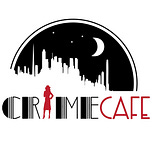


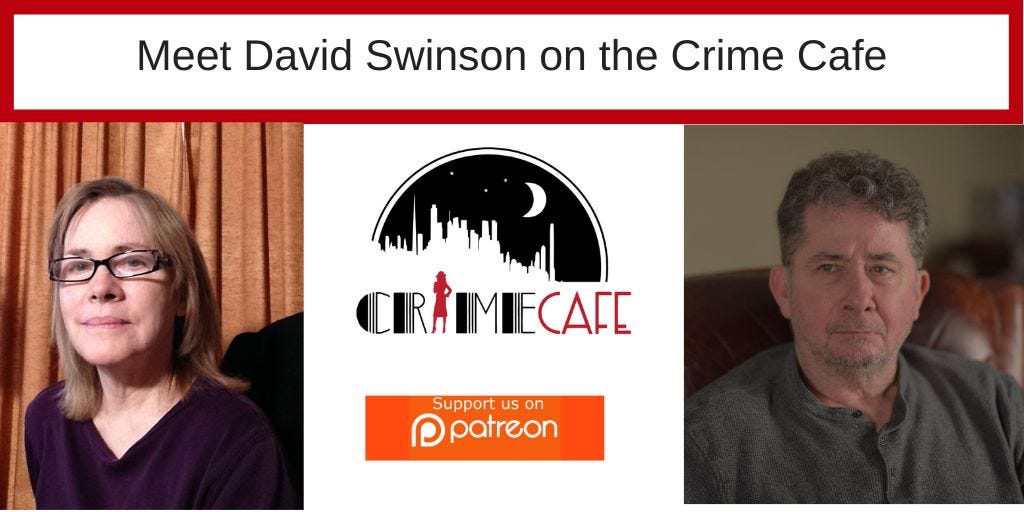





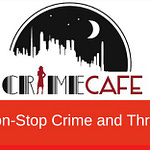
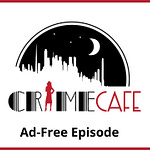
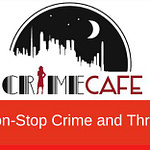


Share this post